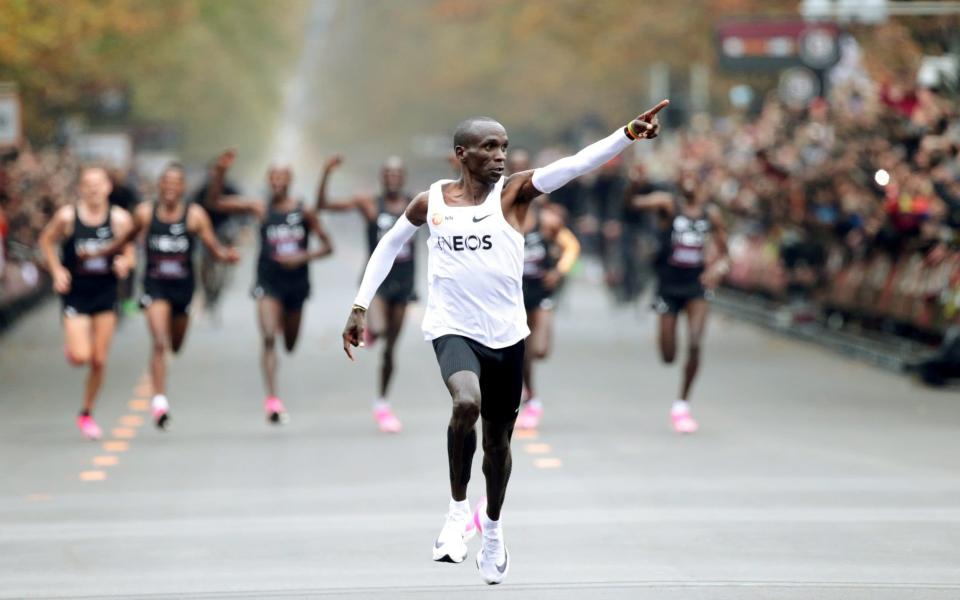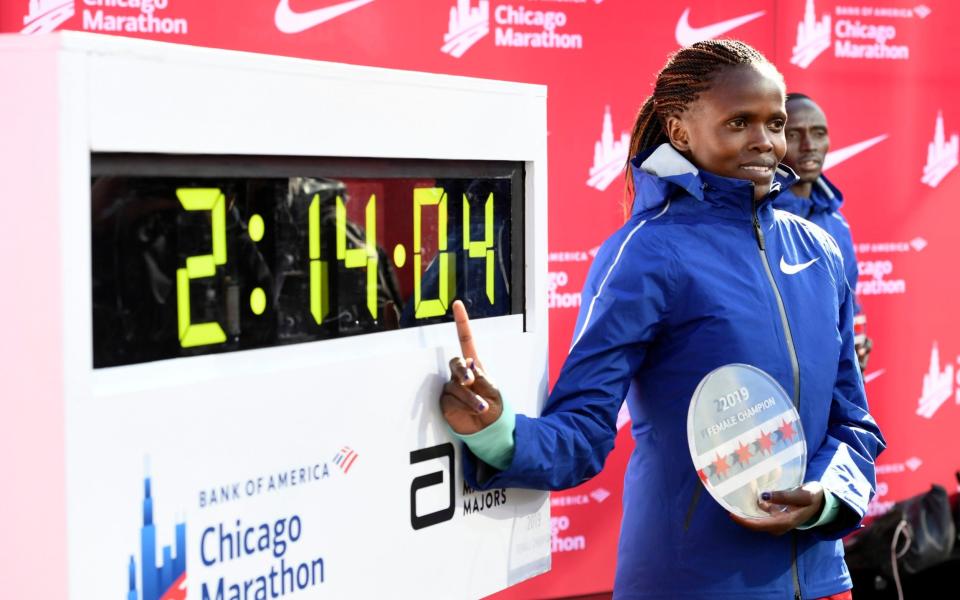London Marathon 2020 to go ahead for elite runners - and world record could be broken over new course

London Marathon organisers have designed a new super-fast elite course for October’s race that will host a potentially world-record breaking showdown between Eliud Kipchoge and Kenenisa Bekele, the two quickest marathon runners in history.
It follows confirmation that an elite-only race will be staged on a Covid-secure loop around St James’s Park that will be repeated 19.8 times, and that the mass race of 45,000 participants will take place virtually over any route in the world of an entrant’s choosing.
Kipchoge, who became the first marathon runner to beat two hours in Vienna last year, will have the chance to again go for that landmark on a course that would count as an official world record, and was also seriously considered for his ‘1.59 challenge’.
Every runner who has entered will still be given an official number and race app, which will allow them to select a route of their choice to complete the 26.2 mile distance. Ongoing uncertainty about the coronavirus means that it has also been decided to stage next year’s race, which will be around the usual course, in October rather than April.
The elite race this year will still finish on The Mall and will provide elite athletes with a much-needed chance to clock a qualification time for the Tokyo Olympics. With no London Marathon next year before the rescheduled Olympics, UK Athletics will also now have to decide whether to stage a separate trials race.

“It’s a very fast course,” said Brasher. “London Marathon Events were part of the organising team as well for the ‘1.59 Kipchoge Challenge’. We did a huge amount of work on assessing every single course. So what we do know is that the course is faster than the current London marathon course.”
As well as Kipchoge and Bekele, whose personal best times are separated by only two seconds, the women’s world record holder Brigid Kosgei is confirmed for the women’s race while David Weir, the eight times previous winner, will take part in the men’s wheelchair race.
Exact numbers for the elite race must still be decided, as well as prize money, and the precise course details have not yet been published.

Brasher said that Covid-19 testing of athletes would begin even before they left their own countries to compete in London. With no spectators lining the route, there are also plans to create special visual and sound effects for the elite runners as they race around St James’s Park.
“We want to provide an environment that excites athletes,” said Brasher, who repeatedly stressed that arrangements for the mass race would ensure that people were together still in “mind and spirit” and that charitable fundraising could be maximised.
The coronavirus has impacted seriously on charities, who are currently facing a funding shortfall of £10 billion. The London Marathon raised £66m last year and there is a hope that this year's unique virtual event can again get close to that mark.
“The London Marathon brings society together in a moment of celebration of all that is good about humanity,” said Brasher.
Around 750,000 spectators usually line the London for the race and the complexity of those numbers combined with a route that goes through much of east and central London was far more problematic than handling the 45,000 runners.
“We had detailed plans to deliver a socially distanced mass participation event – either a run or a walk – and we were planning to utilise new technology to do this,” said Brasher. “We were looking to use a revolutionary technology using Bluetooth and ultra wideband ranging, which is about to be launched worldwide.
“This would have enabled us to accurately monitor every participant’s distance from each other, work out if the participant spent more than 15 minutes within 1.5 metres, or any distance we set, of anyone else and then contact them post-event if anyone had informed us that they had contracted Covid-19 in the two weeks after the event."

 Yahoo News
Yahoo News 
